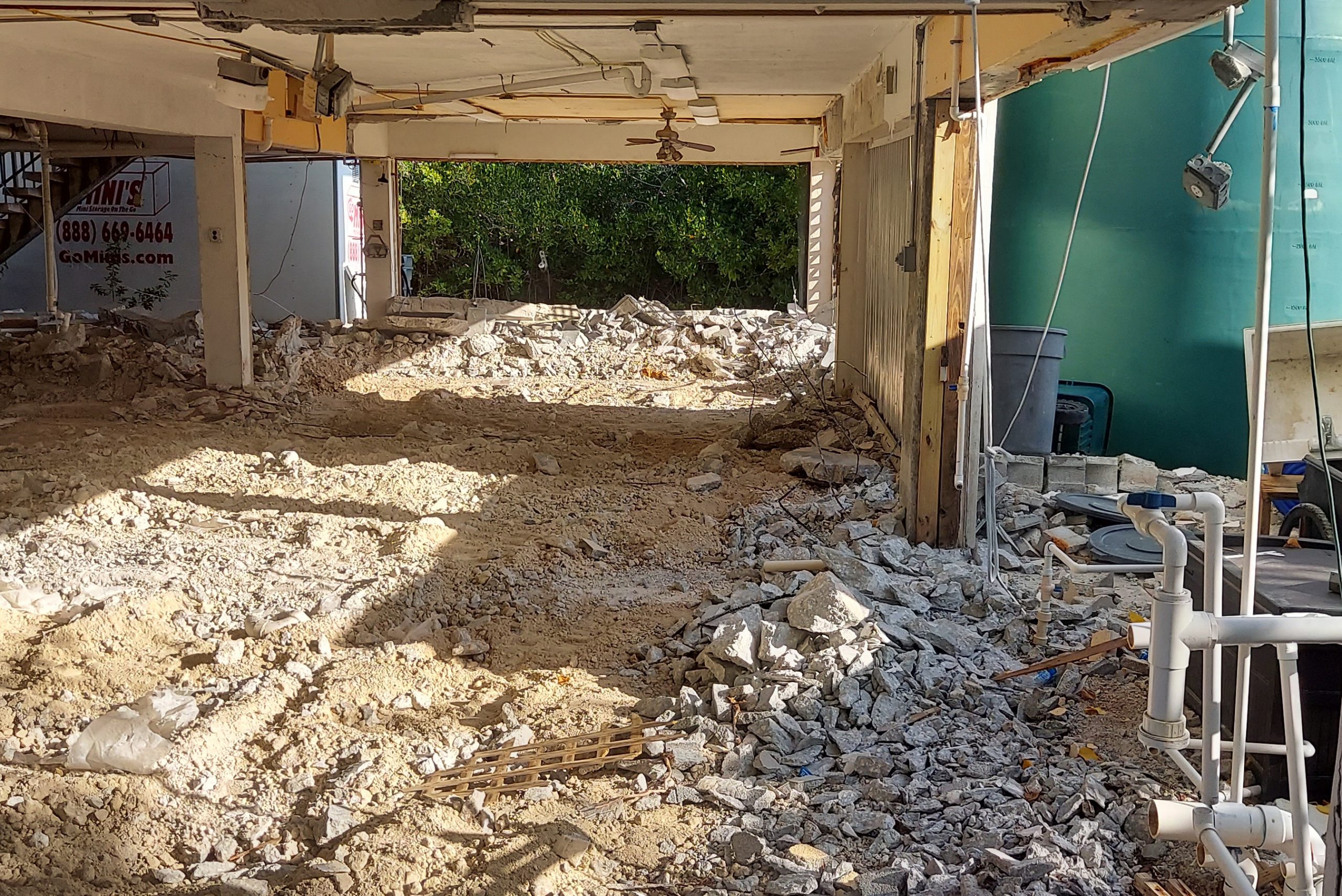Goshen College’s J.N. Roth Marine Biology Station in the Florida Keys is undergoing reconstruction after flooding from Hurricane Irma closed the facility two years ago.
The satellite campus in Layton, Florida provides a place for Goshen College’s marine biology students to get hands-on experience in the coastal environment. Work is currently being done to fix the damage from flooding and meet new zoning regulations in order to have the facility ready to host students again as early as this summer.The station’s Florida Keys location is ideal for studying marine biology but leaves it vulnerable to environmental hazards, such as hurricanes. Two years ago, Hurricane Irma flooded the space and did minor damage. This caused the city to rethink some zoning laws, which required changes to the building’s infrastructure.
“The building was built in 1985, and at that time was considered residential,” said Ryan Sensenig, professor of biology and environmental science at Goshen College. “The city has required us to change to commercial, which means the building now needs . . . a variety of upgrades.”
The old layout of the building featured a classroom on the ground floor. Due to hurricane damage, that is no longer an option.
“After Hurricane Irma caused damage to the ground floor, we are also no longer allowed to have a classroom on the first floor as currently constructed,” Sensenig said. “We are therefore removing the breakaway walls, all ground floor amenities, and considering what the next steps might be for a permanent classroom and research space. This could include flood-proofing the ground floor or exploring the possibility of a new raised building in which a classroom and lab would be elevated.”
Layton was chosen as the location for the station after choir members from Goshen College made a connection with the town’s mayor, Del Layton, following a concert at his church. Layton invited Goshen College to move the program from the location in Big Pine Key where it had been for several years.
For the first few years, labs were held in the town hall and then a building built in collaboration with a local resort. The town of Layton donated a piece of land for the purpose of a marine biology lab, and Goshen built its campus there in 1985.
While the building has been around for a while, the current set up and program is relatively new.
“The marine biology major was approved in 2018 and the full semester of courses at our marine station began in fall 2019,” said Jody Saylor, chair of the biology department. “These upgrades allow us to better house students, research, and classes in our facility.”
The process of restoring the building to a usable state has taken time, but they hope to have it open again within the next few months.
“The facility has been closed for almost two years as we have had to work through these steps of finding a contractor, developing plans, and obtaining permits from the city of Layton,” Sensenig said. “The facility should be open for student groups to stay in again by this summer.”
“The upgrades will allow us to continue the over 50-year history of offering our marine biology May-term class,” said Sensenig, “and further equip us to run the fall marine biology semester where students can take a full semester of courses while living in Layton.”



